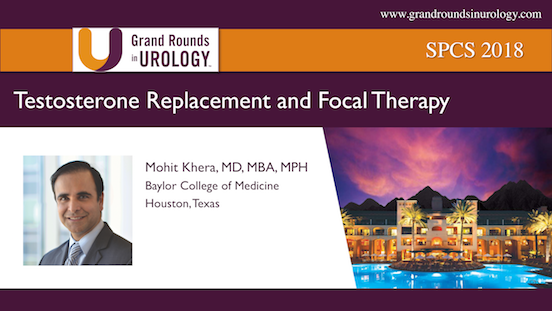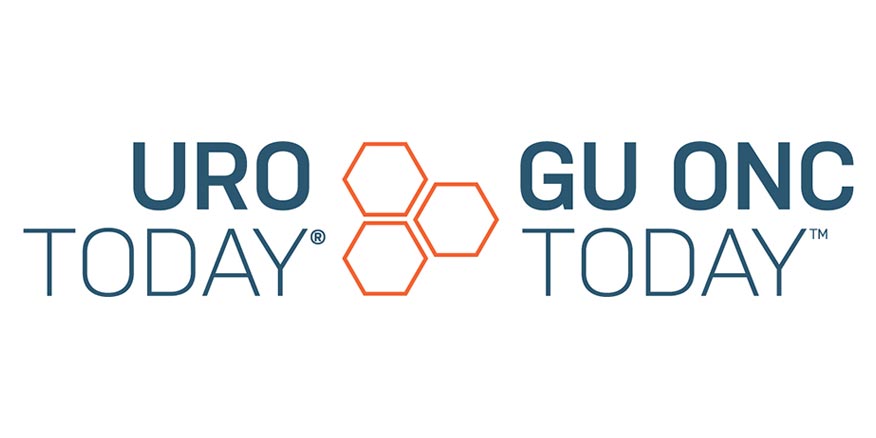Nelson Vergel
Founder, ExcelMale.com
Bipolar Androgen Therapy in the Treatment of Prostate Cancer
Clinical Advances in Hematology & Oncology
June 2018 - Volume 16, Issue 6
H&O What is bipolar androgen therapy (BAT)?
SD BAT consists of the administration of a high dose of androgen—also called testosterone—in an effort to control prostate cancer in men whose tumors are progressing on androgen deprivation therapy (ADT). This causes the levels of testosterone in the blood to alternate between the polar extremes of very high and very low during a treatment cycle.
H&O How can the intermittent administration of high-dose testosterone produce an antitumor effect?
SD We know that testosterone can initially stimulate the growth of prostate cancer when the cancer is still hormone-sensitive, which is why castration is used to inhibit prostate cancer growth. For many years, however, published research has described a paradox in which supraphysiologic levels of androgens also seem to inhibit prostate cancer growth—particularly in prostate cancer cells that have adapted to growing in low levels of testosterone—and cause the tumor cells to die. How can this be?
The answer may lie with the androgen receptor. Prostate cancer cells are highly dependent on or perhaps even addicted to the activity of the androgen receptor—the cells must regulate and degrade the androgen receptor if they are to proliferate. As a strategy for survival in the low-testosterone environment of ADT, prostate cancer cells adapt to produce far more androgen receptor, which allows them to capture every possible molecule of testosterone. Androgen receptors also may mutate so that they function even the absence of testosterone. The result is that prostate cancer is highly responsive to ADT initially but over time becomes resistant and continues to grow.
In BAT, a very high dose of testosterone saturates the androgen receptors, making them more resistant to degradation by the prostate cancer cells. This degradation is required for each cell to go through its normal cycle and produce daughter cells. In other words, we are taking advantage of the cell’s adaptive increase in androgen receptor, which makes it vulnerable to the shock of a high level of testosterone.
The other beneficial aspect of this approach is that when the testosterone level drops again, some of the prostate cancer cells will be resensitized to the low level. This occurs in prostate cancer cells that were able to survive the spike in testosterone by downregulating their androgen receptor.
We want to be able to target all the prostate cancer cells—the ones with very high levels of androgen receptor, which will be sensitive to high levels of testosterone, and the ones with very low levels of androgen receptor, which will be sensitive to the rapid return of low levels of testosterone.
H&O What treatment regimen is used?
SD We use ADT throughout treatment to suppress endogenous testosterone production. We then inject the patient with a US Food and Drug Administration (FDA)–approved dose of generic testosterone that is somewhat high—usually 400 mg—and results in a very high level of testosterone within the first few days. This level is about 5- to 10-fold higher than the normal testosterone level for a 70-year-old man, and almost 100- to 200-fold higher than the castrate level of testosterone. Over approximately 1 month, the level drops back to close to the castrate range. We use the term bipolar androgen therapy because the testosterone level cycles between these polar extremes.
Continue reading
Clinical Advances in Hematology & Oncology
June 2018 - Volume 16, Issue 6
H&O What is bipolar androgen therapy (BAT)?
SD BAT consists of the administration of a high dose of androgen—also called testosterone—in an effort to control prostate cancer in men whose tumors are progressing on androgen deprivation therapy (ADT). This causes the levels of testosterone in the blood to alternate between the polar extremes of very high and very low during a treatment cycle.
H&O How can the intermittent administration of high-dose testosterone produce an antitumor effect?
SD We know that testosterone can initially stimulate the growth of prostate cancer when the cancer is still hormone-sensitive, which is why castration is used to inhibit prostate cancer growth. For many years, however, published research has described a paradox in which supraphysiologic levels of androgens also seem to inhibit prostate cancer growth—particularly in prostate cancer cells that have adapted to growing in low levels of testosterone—and cause the tumor cells to die. How can this be?
The answer may lie with the androgen receptor. Prostate cancer cells are highly dependent on or perhaps even addicted to the activity of the androgen receptor—the cells must regulate and degrade the androgen receptor if they are to proliferate. As a strategy for survival in the low-testosterone environment of ADT, prostate cancer cells adapt to produce far more androgen receptor, which allows them to capture every possible molecule of testosterone. Androgen receptors also may mutate so that they function even the absence of testosterone. The result is that prostate cancer is highly responsive to ADT initially but over time becomes resistant and continues to grow.
In BAT, a very high dose of testosterone saturates the androgen receptors, making them more resistant to degradation by the prostate cancer cells. This degradation is required for each cell to go through its normal cycle and produce daughter cells. In other words, we are taking advantage of the cell’s adaptive increase in androgen receptor, which makes it vulnerable to the shock of a high level of testosterone.
The other beneficial aspect of this approach is that when the testosterone level drops again, some of the prostate cancer cells will be resensitized to the low level. This occurs in prostate cancer cells that were able to survive the spike in testosterone by downregulating their androgen receptor.
We want to be able to target all the prostate cancer cells—the ones with very high levels of androgen receptor, which will be sensitive to high levels of testosterone, and the ones with very low levels of androgen receptor, which will be sensitive to the rapid return of low levels of testosterone.
H&O What treatment regimen is used?
SD We use ADT throughout treatment to suppress endogenous testosterone production. We then inject the patient with a US Food and Drug Administration (FDA)–approved dose of generic testosterone that is somewhat high—usually 400 mg—and results in a very high level of testosterone within the first few days. This level is about 5- to 10-fold higher than the normal testosterone level for a 70-year-old man, and almost 100- to 200-fold higher than the castrate level of testosterone. Over approximately 1 month, the level drops back to close to the castrate range. We use the term bipolar androgen therapy because the testosterone level cycles between these polar extremes.
Continue reading
















